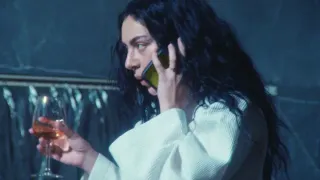January 20, 2018
All That (Gay) Jazz
Tim Pfaff READ TIME: 4 MIN.
American music has produced nothing finer or more advanced than jazz, yet it lurks in the shadows. Sure, even its practitioners and adherents like many of its subaltern aspects, but its geniuses are many, its imitators almost universally bad and its financial rewards whimsically disbursed. Playing jazz, you might "kill," but no way will you be making a killing, unless you're Wynton Marsalis, upon whom brilliance and luck deservedly conspired.
Against such odds, Vijay Iyer's Sextet gets the recognition it richly deserves, but, even there, many people who appreciate his ensemble praise its diversity while missing much of the musical point. If you don't know their latest CD for ECM, "A Cosmic Rhythm with Each Stroke," you're just depriving yourself. Iyer and his Trio are at the SF Jazz Center Jan. 18-20.
Their music is great not only because of the ever-increasing ethnic diversity of the ensemble's core members and side musicians - an ongoing improvisation of personnel - but because together they make music that is challengingly, bravely beautiful, inviting its listeners to rise to it.
Iyer, though straight, stands out among today's renowned jazzmen as a fierce, vocal proponent of LGBT rights, among other things. But even in 2018, in that respect he's still all-too-rare. Being a gay jazz musician may no longer be a non-starter, but neither, in a phenomenally straight-male milieu, is it as accepted as it is even in sports. Why else is the most common answer to "But what about Patricia Barber?" - a singer, pianist, composer, poet of flabbergasting daring - usually "Who?"
Barber's male counterpart is Fred Hersch, who's now added to an artistic legacy as full as it is improbable with a new, Grammy-nominated CD, not incidentally called "Open Book" (Palmetto+), and a memoir published nearly simultaneously, "Good Things Happen Slowly: A Life In and Out of Jazz" (Crown Archetype), whose very title speaks volumes.
The times I've heard Hersch live count among my peak experiences. I'd say more about "Open Book" than "get it; it will change you" if I were better qualified to write about jazz and less inclined to drool on my keyboard. But I find it as telling as it is mildly embarrassing that I found out about "Good Things" from a tweet by Igor Levit, a "classical" pianist with an insistence on pushing musical and political boundaries, and whose own Hersch fandom is one drop shy of slobbering.
Such as there's any problem with Hersch's deeply touching memoir, it's the onslaught of jazz names a general reader might not know. But after decades of telling daily newspaper editors who insist I write for the layman that I can't make it through the lede of a sports story, I cast no blame. Besides, it's just the way jazzmen talk, so skim if you must. Like the books of the Bible, the gospel of jazz is names that hold their own meanings. Had Hersch unpacked them all, his book would have been less, not more, than it is.
Instead he just lays you out with his personal story, told with arresting candor. He can't seem to say often enough how much he hated practicing piano as a kid, and how much he still hates it. And the picture he paints of inserting himself into the jazz scene is both unsparing and unapologetic in its account of his pushiness.
His gay coming-of-age story is all his own, but most gay readers will immediately relate. It's the way he links it with the portrait of the artist as a young man turning into a singularly mature one that makes his book so compelling. It's starting point is this:
"So I plowed ahead at fulfilling both sides of my identity - but separately, toggling between the two. I saw [them] as mutually exclusive and elementally incompatible. I had no role models for an integrated life, and was aware of how difficult reconciling the jazz cat Fred and the gay man Fred would be."
So he writes it all with narrative verve and ever-expanding emotional and personal integrity. You get, unflinching and devoid of self-pity, the musical explorations and the drugs (his and others, prescribed and not), the Village Vanguard and the Pendulum, the partners musical and otherwise (including an ongoing relationship with Scott Morgan that provides one of the book's most moving, honest chapters), the rising professional recognition and the falling T-cells, the AIDS and the AIDS activism.
The chapters you read barely breathing describe the "Madness" of AIDS and Hersch's six-week "Coma." At the end, there's a light-fingered (an in-joke) vignette of his impromptu decision to play, publicly, Joni Mitchell's "Both Sides Now." "When I play it today, I not only feel the music, I connect to the words, having lived a life that I've often seen as having two sides. At this point, though, I've learned that there are many, many sides to most things and most people, myself included."
If you really want your socks knocked off, take the 20-minute stroll "Through the Forest" on "Open Book."






